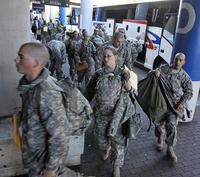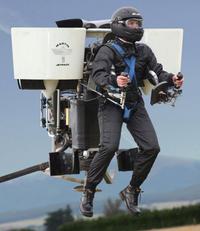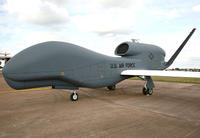-
Technology helps law enforcement predict threats -- and prepare for them
3i-MIND is the LEIM 2011 event to show its technology — a family of configurable solutions which help law enforcement agencies gather and analyze open-source and other intelligence in order to predict and prepare for threats; the technology uses deep-Web tools to access leads found only in social networks, chat rooms, and online forums
-
-
New powertrain improves fuel economy, adds hp Chevrolet Impala Police
GM says that a new 3.6L V-6 engine and a 6-speed automatic transmission achieves 302 hp and an estimated fuel economy of 17 mpg city and 27 mpg highway — a 3 mpg advantage over previous Impala models and 28 percent better than the Ford Crown Victoria; the 2012 Impala can accelerate from 0-60 mph in 6.6 seconds, based on GM engineering tests
-
-
Malaysia's biometric failure
A malfunction in Malaysia’s biometric fingerprint system at its international railway station could have major implications as other countries expand the use of biometrics at ports of entry; last Saturday travelers were infuriated after they were forced to wait nearly an hour and a half to pass through Malaysia’s immigration checkpoints; many tourists had to change or cancel their holiday travel plans all together; the delays came at the height of Malaysia’s tourist season, resulting in sharp criticism from the tourist industry
-
-
Airlines change bag policy after soldiers' video goes viral

Delta Airlines charged U.S. military personnel for check in additional bags on a returning from a tour in Afghanistan, sparking outrage and leading three airlines to change their baggage fee policies for service members; Delta forced thirty-six reservists from Oklahoma to spend a total of more than $2,800 to check in their fourth bags; video of the incident quickly went viral and veterans sharply criticized Delta for charging the service members; Pentagon official played down the incident, saying soldiers’ travel orders stipulate that the government would reimburse soldiers for all excess bag fees
-
-
Emergency responders could have jetpacks by year's end

Emergency responders in New Zealand could soon be zipping around on personal jetpack; last month, Glenn Martin, an inventor based in New Zealand, successfully flew his jetpack up to a height of nearly 5,000 feet; Martin has been hard at work on the jetpack for the last thirty years and hopes to have his “jetski for the skies” commercially available within eighteen months; the jetpack is essentially two two-liter V4 engines strapped to a carbon fiber frame; the device is wingless and is controlled by two joysticks and can be flown with little pilot training; Martin says that the first people to use the device will be emergency responders conducting search and rescue missions
-
-
Anytime, anywhere communications across all devices enhances collaboration

Connecticut-based company offers anytime, anywhere communications across all types of devices — allowing public safety, emergency response, and select critical infrastructure entities to communicate and collaborate in the event of an emergency; the system may also be used by the military — in the field thousands of miles away — to alert, and provide information to in real time, domestic emergency agencies
-
-
General Dynamic wins $867 million DHS contract
Defense giant General Dynamics was awarded a seven year $867 million contract to build DHS’s new headquarters facility in Washington D.C.; under the contract, General Dynamics is tasked with developing an information technology system to transmit voice, video, and data throughout the facility; the company won the contract after DHS backed out of a $2.6 billion contract with Northrop Grumman for the same project last year; the new facility, located at the unused St. Elizabeth’s Hospital, will consolidate the thousands of DHS employees currently scattered among several different buildings
-
-
Disasters a boon to junk removal business
Damaging weather — tornadoes, floods, hurricanes — can be a boon for the junk removal business; the past two years have seen a sharp uptick in the number of natural disasters hitting populated areas; just this spring we have witnessed the deadliest tornado season in almost sixty years; floods have wiped out homes and lives in Mississippi, Vermont, and Manitoba; Australia recovered from massive flooding in Brisbane only to be hit with an earthquake in nearby Christchurch, New Zealand; one junk removal company sees a significant uptick in revenues
-
-
Pentagon: Global Hawk Drone “not operationally effective”

The Pentagon has declared the latest Northrop Grumman Global Hawk drone “not operationally effective”; according to a report by the Pentagon’s weapon testers, the RQ-4B Global Hawk Block 30 could only provide 40 percent of the coverage requested; “Mission-critical components fail at high rates, resulting in poor takeoff reliability, high air abort rates, low mission capable rates, an excessive demand for critical spare parts and a high demand for maintenance support”; Pentagon officials declined to discuss the drone in too much detail but did say that they were working with Northrop Grumman to make improvements to the drone; defense officials have scheduled a production meeting for this month to discuss the program
-
-
New tech taps Earth's deep heat

Established methods for transforming Earth’s heat into electricity involve extracting hot water from rock formations several hundred feet from the Earth’s surface at the few natural hot spots around the world, then using the hot water to turn power-producing turbines; University of Minnesota researchers developed a new system — CO2-plume geothermal system, or CPG — which uses high-pressure CO2 instead of water as the underground heat-carrying fluid; the method is expected not only to produce renewable electricity far more efficiently than conventional geothermal systems, but also help reduce atmospheric carbon dioxide (CO2) — dealing a one-two punch against climate change
-
-
Virtual water would not remedy global fresh water shortage

More than 80 percent of humanity currently lives in regions where water security is threatened, meaning that as the global population grows against a finite volume of freshwater, a more equal distribution of water use between countries will be needed; virtual water — that is, the amount of water it takes to produce goods or a service — has been suggested as a possible solution to this growing problem by using virtual water values to inform international trade deals; a new study suggests that it may not be as revolutionary as first thought
-
-
Germany falsely identifies sprouts as source of outbreak
German health officials have mistakenly identified the source of the deadly E. coli outbreak once again; over the weekend, officials had announced that sprouts were the cause of an outbreak that has killed at least twenty-two people and left more than 600 in critical condition; authorities tested eighteen sprout mixtures, but on Monday results showed that they were not the source of the outbreak; much to the displeasure of Spanish farmers, last week German authorities incorrectly pointed to Spanish cucumbers; officials estimate that Spain’s fruit and vegetable exporters are losing as much as $290 million a week; Spain is seeking reparations
-
-
Biometric CCTV market to hit $3.2 billion in 2016
Analysts project that the biometric CCTV market will be a $3.2 billion industry by 2016, with an annual growth rate of 33 percent; the security camera industry has already seen rapid growth as the private and public sector have installed surveillance systems to help combat crime and provide real-time information; over the next decade, analysts from the Homeland Security Research Corporation (HSRC) project that the next trend in this field will be the increasing integration of biometric technology into surveillance cameras; HSRC’s report projects that these technological developments will help drive the CCTV market and create significant growth opportunities for the security camera industry, biometric and IT systems manufacturers, and security systems integrators
-
-
Imation acquires MXI Security
The cost of data breaches continues to rise annually, with the average organizational cost of a breach reaching $7.2 million in 2010; by 2014, the market for secure data solutions — protecting against data loss, theft, or breach — specifically designed to address secure portable storage, digital identity, and secure portable computing is expected to reach more than $4.5 billion; Imation, a major player in the field of secure data, further strengthens its offerings by acquiring the assets of MXI Security; the move is a continuation of Imation’s strategy of investing in key technology platforms to meet customers’ needs
-
-
Smiths Detection wins two government contracts
The Department of Defense (DoD) recently awarded Smiths Detection a $30 million contract to supply the military with chemical detection devices; under the contract Smiths Detection will provide its newly enhanced M4A1 JCADs, a portable detection device that weighs less than two pounds and warns of the presence of any dangerous chemical warfare agents or toxic chemicals; Smiths Detection also received a 16 million Euro contract from the German Federal Ministry of Finance to provide X-ray scanners for cargo systems
-
- All
- Regional
- Water
- Biometrics
- Borders/Immig
- Business
- Cybersecurity
- Detection
- Disasters
- Government
- Infrastructure
- International
- Public health
- Public Safety
- Communication interoperabillity
- Emergency services
- Emergency medical services
- Fire
- First response
- IEDs
- Law Enforcement
- Law Enforcement Technology
- Military technology
- Nonlethal weapons
- Nuclear weapons
- Personal protection equipment
- Police
- Notification /alert systems
- Situational awareness
- Weapons systems
- Sci-Tech
- Sector Reports
- Surveillance
- Transportation
Advertising & Marketing: advertise@newswirepubs.com
Editorial: editor@newswirepubs.com
General: info@newswirepubs.com
2010-2011 © News Wire Publications, LLC News Wire Publications, LLC
220 Old Country Road | Suite 200 | Mineola | New York | 11501
Permissions and Policies
Editorial: editor@newswirepubs.com
General: info@newswirepubs.com
2010-2011 © News Wire Publications, LLC News Wire Publications, LLC
220 Old Country Road | Suite 200 | Mineola | New York | 11501
Permissions and Policies
